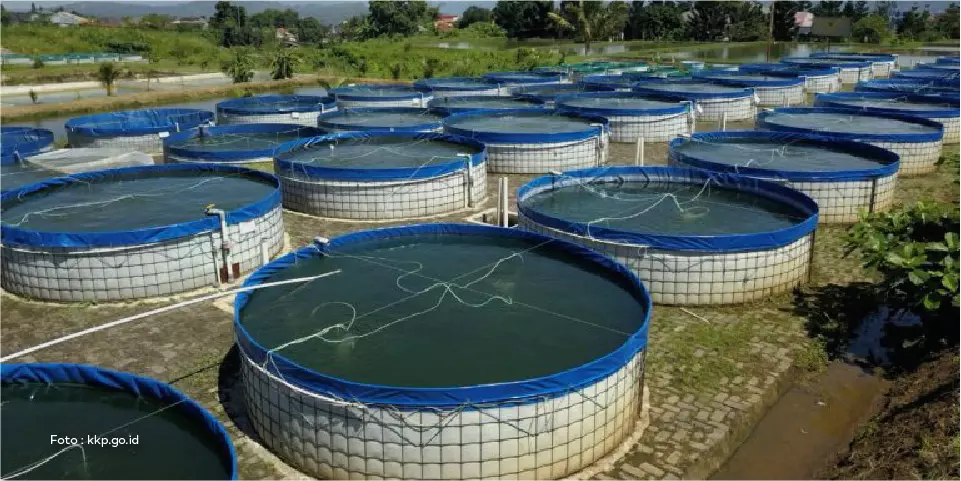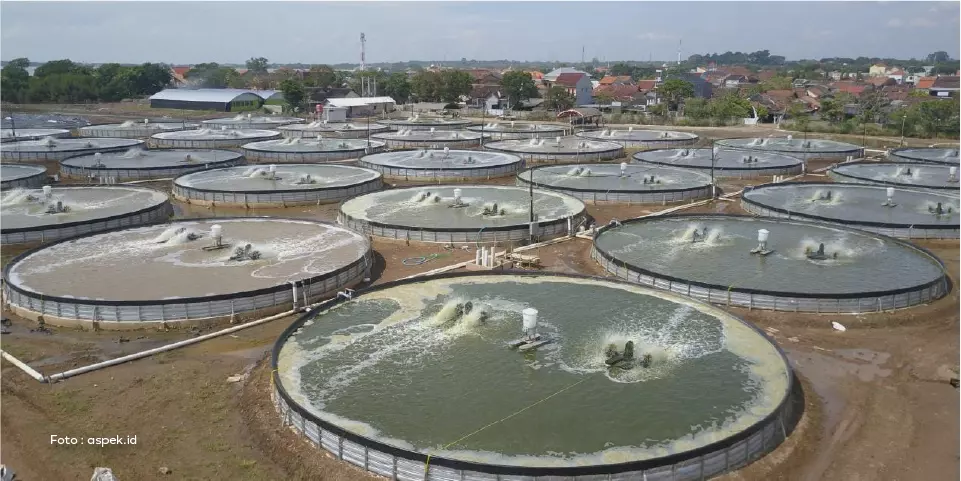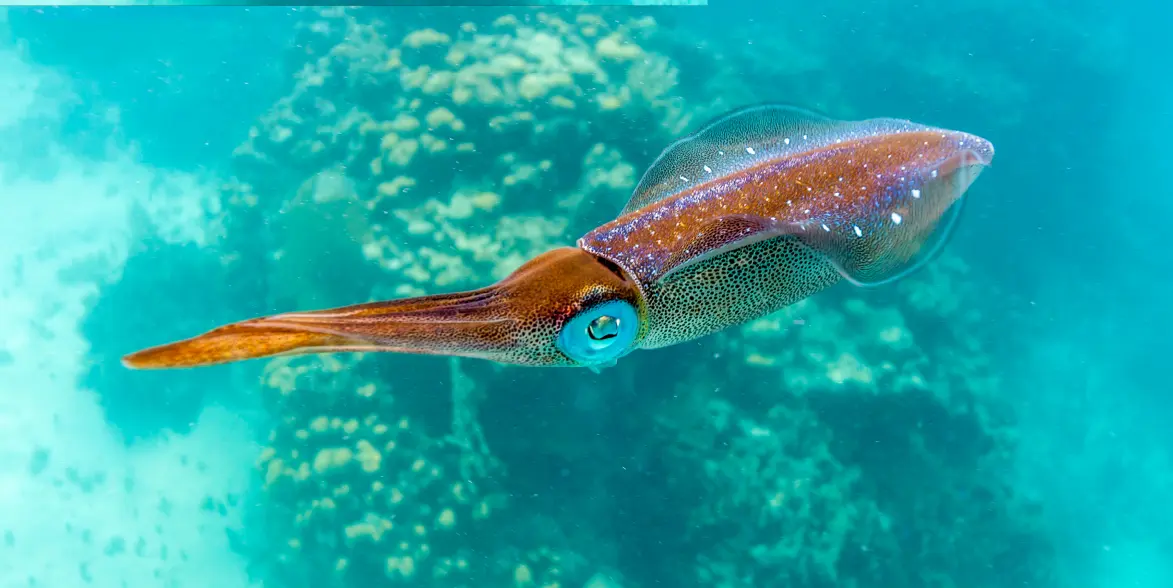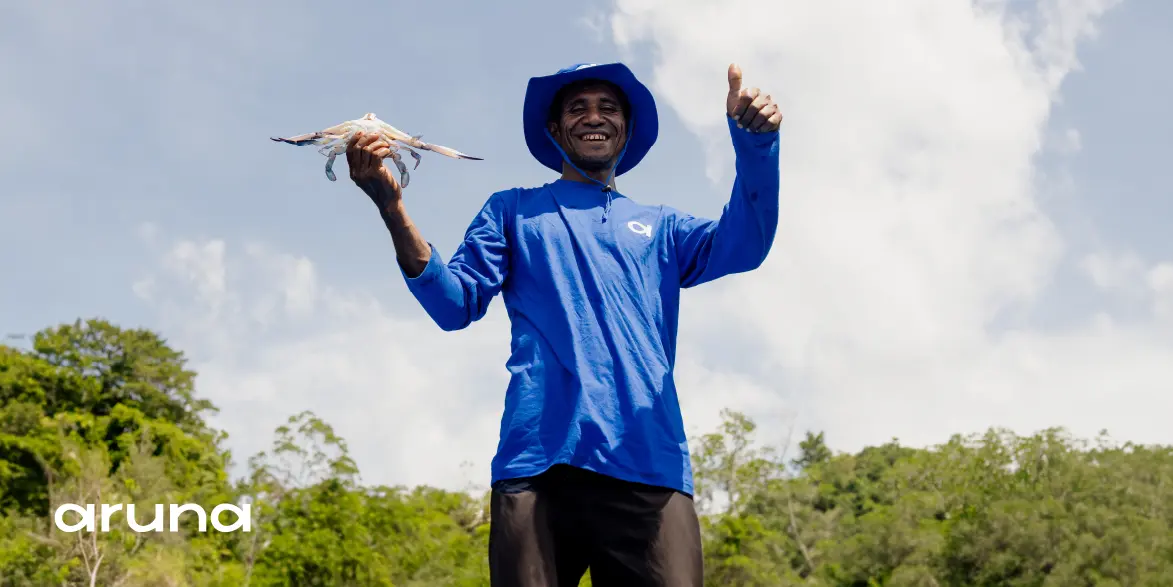In 2021, a young man named Erik Hidayat, who is an entrepreneur in the fisheries industry, transformed his aquaculture activities from manual methods to developing fish farming using the biofloc system. The main reason Erik undertook this transformation in his business was that he considered the biofloc system more efficient in maximizing land use and achieving higher harvest yields. The transformation carried out by this young entrepreneur caught the attention of the Banjar City Government (Pemkot Banjar). Erik’s popularity, along with the biofloc freshwater fish farming system, quickly gained traction among the people of Banjar City.
The Biofloc Farming System is More Efficient Compared to Manual Techniques
The biofloc farming system is a technology that manipulates the environment by relying on oxygen supply and utilizing microorganisms, which directly contribute to improving the digestibility of fish feed. In terms of land area ratio, one biofloc unit measuring 10 cubic meters can be used for breeding 1,000 fish. In contrast, using manual techniques, Erik could only accommodate 100 fish fry in a 10-cubic meter area of land. This more efficient land utilization naturally piqued the interest of many people who were inclined to follow Erik’s footsteps and switch to a career in fish farming.
Biofloc Cultivation Has its Challenges

Indeed, success cannot be achieved without facing obstacles, including the successful implementation of the biofloc fish farming method, which has attracted the attention of the people of Banjar City. After being widely adopted by the community, the fish farming system that meets the aspects of sustainable fisheries faced various challenges due to the high production costs, including:
- The use of feed may be more efficient, but the high cost of feed still leads to inflated expenses.
- It requires significant electricity consumption due to reliance on oxygen circulation equipment.
In addition to the aforementioned challenges, the selling price of the harvest also poses a challenge for the development of the biofloc farming system in Banjar City, which requires immediate solutions.
Banjar City’s KP3 Department Provides Assistance and Subsidies to Fish Farming Entrepreneurs
Yoyon Cuhyon, S.Pt, M.Si, the Head of the Food Security, Agriculture, and Fisheries Department of Banjar City, stated that they have prepared solutions for the challenges faced by biofloc farming practitioners in their region. The KP3 Department of Banjar City has previously provided a market for breeders to sell their produce directly, bypassing intermediaries. However, the significant operational costs still need to be addressed.
The KP3 Department of Banjar City expressed its commitment to continue providing guidance and working towards market access for biofloc fish farming practitioners. “To address the issue of production costs, we can recommend subsidies from the State Electricity Company (PLN) for biofloc farmers in Banjar City,” said Yoyon. In 2023, Yoyon stated that they would continue to strive to provide assistance to support fish farming entrepreneurs using the biofloc system in Banjar City, ensuring their continued involvement in the fisheries industry.
“We will synchronize the activities in the villages with the fisheries programs of the Ministry of Maritime Affairs and Fisheries (KKP). Not only that, we will also strive for changes in the local budget allocation (APBD),” said Yoyon. Additionally, Bank Indonesia plans to provide assistance in building fish storage and marketing facilities.
Implementation of Sustainability Must Be Done comprehensively
The implementation of sustainable fisheries is not only about environmentally friendly practices but also about the development of knowledge that should be possessed by all parties involved. Aruna’s success as a fisheries company and supply chain aggregator is not just about encouraging fishermen to engage in sustainable fishing practices, but also providing broader market access, including the global market.
The challenges faced by biofloc cultivation practitioners in Banjar City need attention from all parties to ensure that the community’s spirit to improve their livelihoods through the marine and fisheries sector remains strong. The Banjar City Department of Marine and Fisheries can collaborate with academic institutions and fisheries researchers to prioritize the improvement of cultivation systems and quality standards for harvests. Thus, in the future, the development of cultivation results using biofloc techniques will be ready to access a broader market.
Aruna Hub, which is an ecosystem of the fishing community developed by Aruna, will be ready to assist the Banjar City government or other regions in exploring collaborations to provide guidance for domestic fish cultivation practitioners. By emphasizing collaboration and knowledge transfer from various stakeholders, it will be easier to find solutions to any issues that arise in the fisheries sector.











Leave a reply
No comments found.